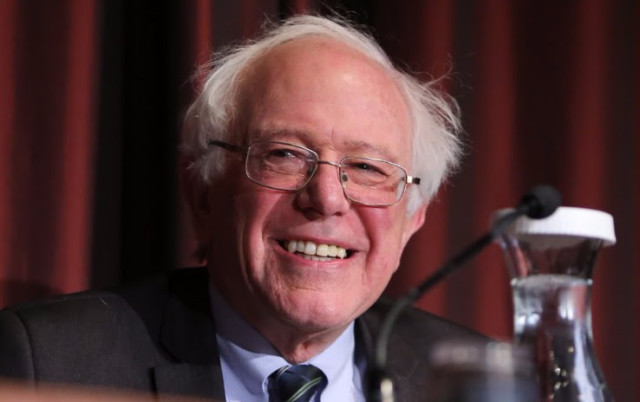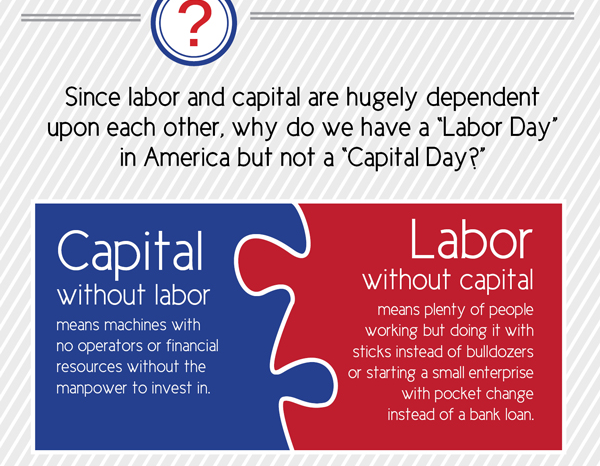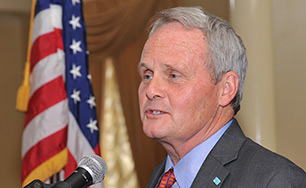King Canute vs. the Climate Planners by Jeffrey A. Tucker
“With a small hammer you can achieve great things.”
Oh really?
This claim comes from French foreign minister Laurent Fabius as he banged his gavel at the close of the Paris climate summit. To the cheers of bureaucrats and cronies the world over, Fabius announced the deal that the press has been crowing about for days, the one in which “humanity” has united to stop increases in global temperature through the transfer of trillions of dollars from the rich to the poor, combined with the eventual (coercive) elimination of fossil fuels.
And thus did he bang his gavel. To his way of thinking, and that of the thousands gathered, that’s all you have to do to control the global climate, cause the world to stop relying on fossil fuels, and dramatically change the structure of all global industry, and do so with absolute conviction that benefits will outweigh the costs.
One bang of a gavel to dismantle industrial civilization by force, replace it with a vague and imagined new way of doing things, and have taxpayers pay for it.
Markets Yawn
Interestingly, the news on the Paris agreement had no notable impact on global markets at all. No prices rose or fell, no stocks soared or collapsed, and no futures responded with confidence that governments would win this one. The climate deal didn’t even make the business pages.
Investors and speculators are perhaps acculturated to ignoring such grand pronouncements. “The Paris climate conference delivered more of the same — lots of promises and lots of issues still left unresolved,” the US Chamber of Commerce said in a statement. And maybe that’s the right way to think, given that the world is ever less controlled by pieces of paper issued by government.
Still, breathless journalists wrote about the “historic agreement” and government officials paraded around as planet savers. Meanwhile, the oil price continues to fall even as demand rises, and the Energy Information Administration announced the discovery of more reserves than anyone believed possible. As for alternatives to fossil fuels, they are coming about through private sector innovation, not through government programs, and successful only when adopted voluntarily by consumers.
It’s a heck of a time to announce a new global central plan affecting the way 7 billion people use energy for the next century. Anyone schooled in the liberal tradition, or even slightly familiar with Hayek’s warning against the pretensions of the “scientific” government elites, shakes his or her head in knowing despair.
The entire scene looks like the apotheosis of the planning mentally — complete with five-year plans to monitor how well governments are doing in controlling the climate for the whole world and do so in a way that affects temperature 10-100 years from now.
King Canute?
The scene prompted many commentators to compare these people celebrating in Paris to King Canute, who ruled Denmark, England, and Norway a millennium ago. According to popular legend, as a way of demonstrating his awesome power, he rolled his throne up to the sea and commanded it to stop rising.
It didn’t work. Still, the image appears in many works of art. Even Lego offers a King Canute scene from its historical set.
Historians have challenged the point of the story. The only account with have of this incident, if it occurred at all, is from Henry of Huntingdon. He reports that after the sea rose despite his command, the King declared: “Let all men know how empty and worthless is the power of kings, for there is none worthy of the name, but He whom heaven, earth, and sea obey by eternal laws.”
He did and said this, say modern experts, to demonstrate to his courtiers and flatterers that he is not as wonderful and powerful as they were proclaiming him to be. Instead of subservience to his own person, he was urging all citizens to save their adoration for God.
His point was that power — even the absolute power of kings — has limits. During his rule, King Canute was enormously popular and evidently benefitted from the common tendency of people to credit authority for the achievements of the spontaneous evolution of the social order itself. His sea trick, if it happened at all, was designed to show people that he is not the man they thought he was.
The Pretensions of the Planners
Lacking a Canute to give us a wake-up call, we might revisit the extraordinary speech F.A. Hayek gave when he received his Nobel Prize. He was speaking before scientists of the world, having been awarded one of the most prestigious awards on the planet.
Rather than flattering the scientific establishment, particularly as it existed in economics, he went to the heart of what he considered the greatest intellectual danger that was arising at the time. He blew apart the planning mindset, the presumption that humankind can do anything if only the right people are given enough power and resources.
If the planning elite possessed omniscience of all facts, flawless understanding of cause and effect, perfect foresight to know all relevant changes that could affect the future, and the ability to control all variables, perhaps their pretensions would be justified.
But this is not the case. Hayek called the assumption the harshest possible word: “charlatanism.”
In the climate case, consider that we can’t know with certainty whether, to what extent, and how climate change (especially not 50-100 years from now) will affect life on earth. We don’t know the precise causal factors and their weight relative to the noise in our models, much less the kinds of coercive solutions to apply and whether they have been applied correctly and with what outcomes, much less the costs and benefits of attempting such a far-flung policy.
We can’t know any of that before or after such possible solutions have been applied. Science requires a process and unrelenting trial and error, learning and experimentation, the humility to admit error and the driving passion to discover truth.
In other words, science requires freedom, not central planning. The idea that any panel of global experts, working with appointed diplomats and bureaucrats, can have the requisite knowledge to make such grand and final decisions for the globe is outlandish and contrary to pretty much everything we know.
Throw the reality of politics into the mix and matters get worse. Fear over climate change (the ultimate market failure “problem”) is the last best hope for those who long to control the world by force. The entire nightmare scenario of rising tides and flooded cities — one that posits that our high standard of living is causing the world to heat up and burn — is just the latest excuse. That fact remains whether or not everything they claim is all true or all nonsense.
Pretensions Everywhere
Hayek explains further: “To act on the belief that we possess the knowledge and the power which enable us to shape the processes of society entirely to our liking, knowledge which in fact we do not possess, is likely to make us do much harm.”
Why? Because planning overrides the spontaneous discovery process that is an inherent part of the market structures.
We are only beginning to understand on how subtle a communication system the functioning of an advanced industrial society is based — a communications system which we call the market and which turns out to be a more efficient mechanism for digesting dispersed information than any that man has deliberately designed.
He went further. The planning fallacy doesn’t just affect economics. It is a tendency we see in all intellectual realms, including climatology and its use by governments to justify the desire to manage the world from on high.
Hayek’s conclusion is so epic that it deserves to be quoted in full.
If man is not to do more harm than good in his efforts to improve the social order, he will have to learn that in this, as in all other fields where essential complexity of an organized kind prevails, he cannot acquire the full knowledge which would make mastery of the events possible.
He will therefore have to use what knowledge he can achieve, not to shape the results as the craftsman shapes his handiwork, but rather to cultivate a growth by providing the appropriate environment, in the manner in which the gardener does this for his plants.
There is danger in the exuberant feeling of ever growing power which the advance of the physical sciences has engendered and which tempts man to try, “dizzy with success”, to use a characteristic phrase of early communism, to subject not only our natural but also our human environment to the control of a human will.
The recognition of the insuperable limits to his knowledge ought indeed to teach the student of society a lesson of humility which should guard him against becoming an accomplice in men’s fatal striving to control society — a striving which makes him not only a tyrant over his fellows, but which may well make him the destroyer of a civilization which no brain has designed but which has grown from the free efforts of millions of individuals.
Or we could just quote King Canute after the tides failed to respect his edict: “Let all men know how empty and worthless is the power of kings, for there is none worthy of the name.”
Jeffrey Tucker is Director of Digital Development at FEE, CLO of the startup Liberty.me, and editor at Laissez Faire Books. Author of five books, he speaks at FEE summer seminars and other events. His latest book is Bit by Bit: How P2P Is Freeing the World. Follow on Twitter and Like on Facebook.

















